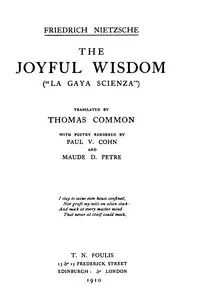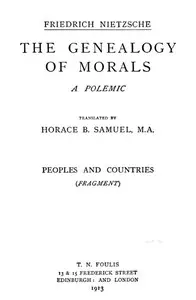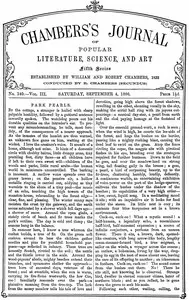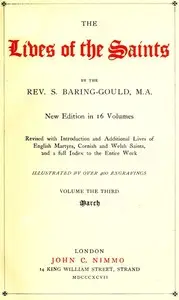"The Will to Power: An Attempted Transvaluation of All Values, Book III and IV" by Friedrich Nietzsche is a philosophical treatise written in the late 19th century. The work delves into Nietzsche's ideas regarding the concept of the "Will to Power," arguing for a radical re-evaluation of values across various realms, including science, art, and morality. Nietzsche's exploration challenges conventional understandings and seeks to assert the human will as a dominant force in shaping knowledge and values. The opening of the volume introduces key themes and topics that Nietzsche will discuss in the subsequent sections. He begins by criticising traditional scientific methods, positing that science is as subjective as art, shaped by humanity's instinctual drive for survival and power. Nietzsche dismantles foundational concepts such as causality, the "ego," and the notion of objective truth, arguing that they are merely constructs imposed by human perspectives. He asserts that knowledge serves the Will to Power, emphasizing that our understanding and interpretations of the world are fundamentally influenced by our instincts and biological imperatives, thus laying the groundwork for a new philosophical framework. (This is an automatically generated summary.)
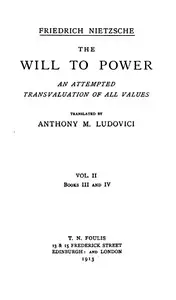
The Will to Power: An Attempted Transvaluation of All Values. Book III and IV
By Friedrich Wilhelm Nietzsche
"The Will to Power: An Attempted Transvaluation of All Values, Book III and IV" by Friedrich Nietzsche is a philosophical treatise written in the late...
Friedrich Wilhelm Nietzsche was a German classical scholar, philosopher, and critic of culture, who became one of the most influential of all modern thinkers. He began his career as a classical philologist before turning to philosophy. He became the youngest person to hold the Chair of Classical Philology at the University of Basel in Switzerland in 1869, at the age of 24, but resigned in 1879 due to health problems that plagued him most of his life; he completed much of his core writing in the following decade. In 1889, at age 44, he suffered a collapse and afterward a complete loss of his mental faculties, with paralysis and probably vascular dementia. He lived his remaining years in the care of his mother until her death in 1897, and then with his sister Elisabeth Förster-Nietzsche. Nietzsche died in 1900, after experiencing pneumonia and multiple strokes.


